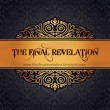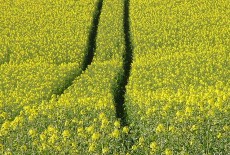The conflicting report of no one vs Adam & Muhammad seeing Jannah
Questioner : the following hadeeth claims no man knows what is in the Jannah
On the authority of Abu Hurayrah (may Allah be pleased with him), who said that the Messenger of Allah (ﷺ) said:
Allah said: I have prepared for My righteous servants what no eye has seen and no ear has heard, not has it occurred to human heart. Thus recite if you wish (1): And no soul knows what joy for them (the inhabitants of Paradise) has been kept hidden (Quran Chapter 32 Verse 17)
[Ref: Saheeh Muslim and elsewhere]
the following statement shows as if the Prophet sallalahu `alayhi wa sallam saw jannah
The Prophet (ﷺ) said, “I was shown Paradise and wanted to have a bunch of fruit from it. Had I taken it, you would have eaten from it as long as the world remains.”
[Ref: Bukhari]
Apart from this it even mentions in the Qur’an that Adam `alayhis salaam was made to dwell in the paradise so he saw paradise then how can the first hadeeth and verse say no man has seen it?
Answer :
Imam Ahlus-sunnah Ibn Khuzaima said: “there are no two Hadeeth Saheeh that have any conflicting meaning, if any one knows such as case, let him bring it to me and I will explain both in the right way”
[Ref: Al taqyed wal `Ieyd page 285]
The first hadeeth you mentioned speaks of the blessings which Allah has made regarding which no man has thought or known or seen. This is one.
the second part of the question show that the prophet sallalahu `alayhi wa sallam and adam `alayhis salaam saw the paradise.
There is no ta`rrudh (contradition) here because the first hadeeth speaks of specific blessings which haven’t been shown YET while the second texts speak of parts of jannah which have been shown
This is like saying – and to allah belongs the best of examples –
” I have prepared an project which no one has seen nor thought of in my college”
and my friend said
” I saw page no. 3 from his excel project “
There is no contradiction here for my friend only saw a small tiny part of it and that which i wanted to show him whereas for the other hidden parts which i am yet to show then they have no been seen by any of my college mates.
This is further clarified from another hadeeth of Bukhari itself which says
حَدَّثَنِي إِسْحَاقُ بْنُ نَصْرٍ، حَدَّثَنَا أَبُو أُسَامَةَ، عَنِ الأَعْمَشِ، حَدَّثَنَا أَبُو صَالِحٍ، عَنْ أَبِي هُرَيْرَةَ ـ رضى الله عنه ـ عَنِ النَّبِيِّ صلى الله عليه وسلم ” يَقُولُ اللَّهُ تَعَالَى أَعْدَدْتُ لِعِبَادِي الصَّالِحِينَ مَا لاَ عَيْنٌ رَأَتْ، وَلاَ أُذُنٌ سَمِعَتْ، وَلاَ خَطَرَ عَلَى قَلْبِ بَشَرٍ، ذُخْرًا، بَلْهَ مَا أُطْلِعْتُمْ عَلَيْهِ ”. ثُمَّ قَرَأَ {فَلاَ تَعْلَمُ نَفْسٌ مَا أُخْفِيَ لَهُمْ مِنْ قُرَّةِ أَعْيُنٍ جَزَاءً بِمَا كَانُوا يَعْمَلُونَ}
The Prophet, said, “Allah said, ‘I have prepared for My pious worshipers such things as no eye has ever seen, no ear has ever heard of, and nobody has ever thought of. All that is reserved, besides which, all that you have seen, is nothing.” Then he recited:– ‘No soul knows what is kept hidden (in reserve) for them of joy as a reward for what they used to do.’ (32.17)
[Ref: Bukhaari, darrusalaam translation]
The phrase بَلْهَ مَا in this context is meant to imply an exception from what the prophet sallalahu `alayhi wa sallam was already shown.
Imam ibn Hajar asqalani says that the most strongest and dominant meaning of بَلْهَ مَا is taken as a negation to specify something out meaning that no one knows or has seen of the blessings allah has made for his slaves excluding what he has shown and taught and informed regarding to the prophet sallalahu `alayhi wa sallam and ibn hajar also said that whoever is intelligent enough will agree to this meaning.
[Ref: Fath ul-Bari 8/517]
Some books on this topic. Note: dr. iqbal biskovari hafidhaullah recently informed me that he is soon going to publish or complete the work on ibn qutayba’s taweel Mukhtaliful Hadeeth in Urdu. so those who know urdu should hasten to buy it.
Ibn qutaiba and others like shafi have books explaining (taweel) of mukhtalif (contradictory) ahadeeth.
Imaam Shafi’ee authored a booklet in ‘Ihktilaaf of hadeeth’, then Ibn Qutaybah followed him in that as did Abu Yahya Zakareeyah bin Yahya as-Saajee, Tahawee, Tabaree, Ibn Abdul Barr and Ibn al-Jawzi. All of this shows the importance of Fiqh ul-Hadeeth to the Muhadditheen, researchers and those who extrapolate rulings.
This is what al-Khateeb indicated in his book ‘al-Kafaya’:
‘If it were not for the concern of Ashaabul Hadeeth (the companions of hadeeth) with the precision of the Sunnan, gathering them, extracting them from their sources and researching the different paths, the Sharia’ would have become void and its rulings would have been cancelled out because the rulings were extrapolated from preserved Athaar (narrations) and they took benefit from the transmitted Sunnan.’
[Ref: Al-Jama` by al-khateeb (2/212)]








